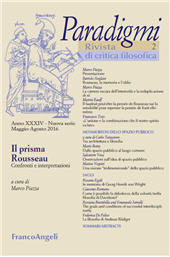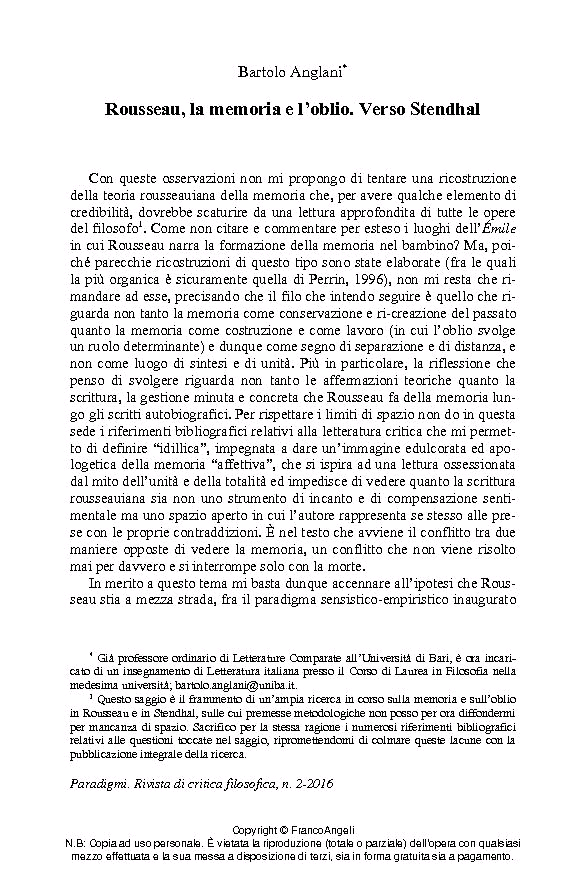Rousseau, la memoria e l'oblio : verso Stendhal
13-26 p.
L'autore analizza alcuni passi del primo libro delle Confessions allo scopo di ricavarne spunti relativi al grande tema della memoria e dell'oblio in Rousseau, e colloca l'esperienza rousseauiana a mezza strada fra il paradigma lockiano della memoria come "magazzino" delle idee e l'immagine stendhaliana dell'affresco che ha perso alcune parti. Ciò che emerge dalla lettura dei passi autobiografici è un uso particolare della visualità, grazie al quale Rousseau illude il lettore di "vedere" le scene dell'infanzia che in realtà egli non descrive. Il saggio parte dai contributi di Starobinski e di Orlando, che vengono riassunti e commentati. [Testo dell'editore].
The author analyses some passages from the first volume of the Confessions in order to derive useful hints in regard to the major theme of the memory and forgetfulness in Rousseau, classifying the Rousseauan experience halfway between the Lockean pattern of the memory as "warehouse" of ideas and Stendhal's vision of a "tapestry" that has lost a few parts. What comes to light from the reading of the autobiographical passages is a peculiar use of the visuality, thanks to which Rousseau deceives the reader providing him the illusion of "seeing" the childhood scenes without having depicted them. The essay starts from the critical contributions by Starobinski and Orlando, of which it offers both a summary and a commentary. [Publisher's Text].
Fait partie de
Paradigmi : rivista di critica filosofica : XXXIV, 2, 2016-
Articles du même numéro (disponibles individuellement)
-
Informations
Code DOI : 10.3280/PARA2016-002002
ISSN: 2035-357X
KEYWORDS
- Infanzia, Memoria, Oblio, Rousseau, Stendhal, Visualità
- Childhood, Forgetfulness, Memory, Rousseau, Stendhal, Visuality



